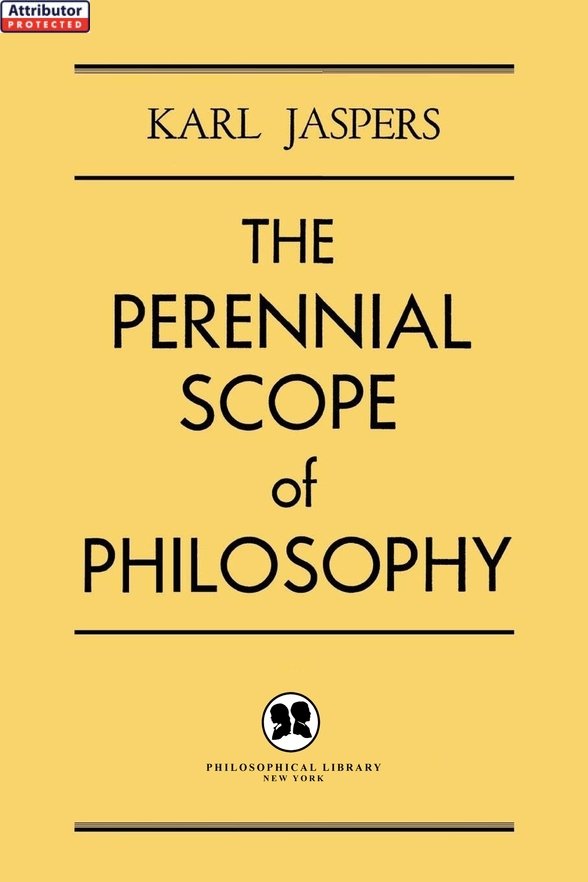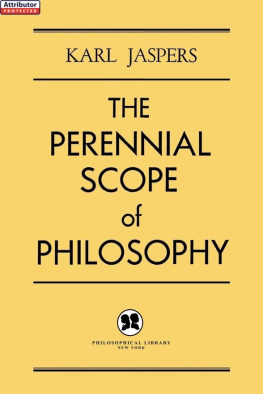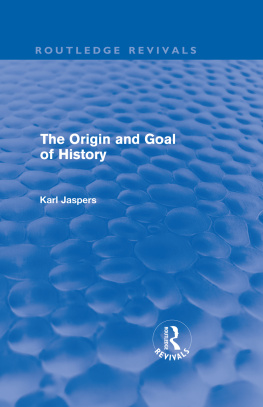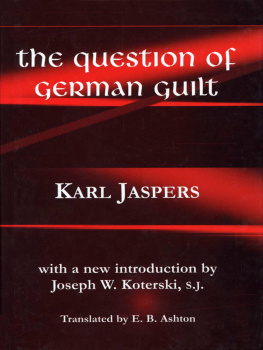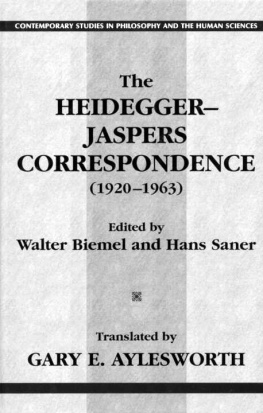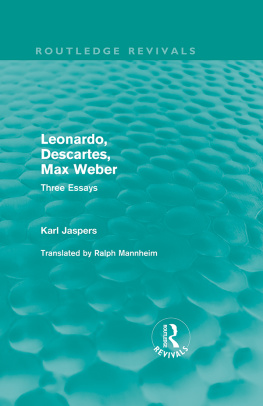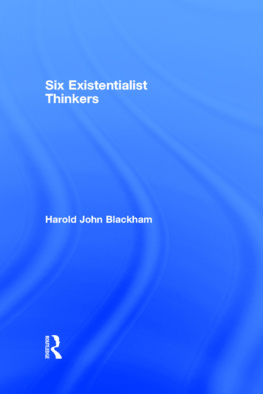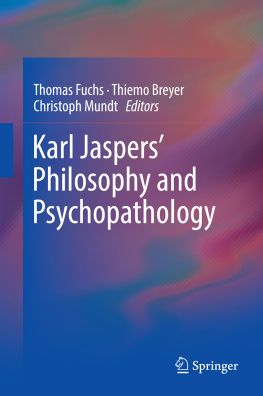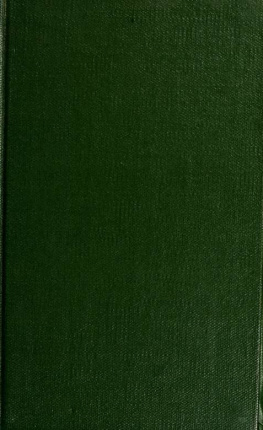CHAPTER ONE
WHAT IS PHILOSOPHICAL FAITH?
I F we ask: by what and toward what shall we live, one answer will no doubt be: by revealed faith; for outside it there can be only nihilism. A theologian recently declared: It is no mere presumption on the part of the Church to say that the crucial alternative is: Christ or nihilism.If this were the case, there would be no philosophy. There would be on the one hand a history of philosophy, that is, a history of unbelief leading to nihilism, and on the other hand a system of concepts in the service of theology. Philosophy itself would be deprived of its heart, and where a theological atmosphere has prevailed, this has indeed been its lot. Even when works of consummate intellectual artistry have been created in such an atmosphere, they have taken their mood from an alien, non philosophical source, ecclesiastical religion; their independence has been borrowed and illusory, and they have not been taken quite seriously as philosophy.
Another answer to our question is that we should live by human reason, by the sciences, which point to meaningful aims in the world and teach us methods of achieving them. For apart from the sciences, it is said, there are only illusions. Philosophy is not autonomous; step by step it has sloughed off all the sciences, and in the end even logic has become a specialized science. So that by now nothing is left.If this were so, there would again be no philosophy. Philosophy was once a road to the sciences. Now at best it can drag on a more or less superfluous existence as a handmaiden to the sciences, perhaps in the form of epistemology.
But both these conceptions seem to contradict the inner meaning of philosophy in the three millennia of its history in China, India and the West. They are incompatible with the seriousness of our attitude toward philosophical problems today, at a time when philosophy has ceased to be the handmaiden of the sciences as it was towards the end of the nineteenth century, yet has not relapsed into a position of subservience to theology.
These facile alternatives of revealed faith or nihilism, of total science or illusion, serve as weapons of spiritual intimidation; they rob people of their God-given responsibility and make them subservient. They rend human possibilities into antinomies, and authentic humanity is forgotten.
Those who accept such alternatives declare that anyone who dares to carry on the venerable tradition of philosophy must either be a nihilist or an illusionist. And if we do not live up to the preconceived picture, we are reproached with shallowness, inconsistency, trivial rationalism, unworldliness; we are attacked from both sides, by the proponents of an exclusive revealed faith and of a science that has developed into superstition.
We shall take up this challenge. We shall attempt to keep open the horizons of humanity in our philosophical thinking. Philosophy must not abdicate. Least of all today.
We live in the awareness of perils that were unknown to past centuries; our communication with the men of other ages may be broken off; we may heedlessly deprive ourselves of tradition; human consciousness may decline; there may be an end to open communication among men. In view of the dangers with which we are faced, we must in our philosophizing prepare for every eventuality, in order that our thinking may help humanity to preserve its highest potentialities. Precisely because of the catastrophe that has overtaken the Western world, philosophical thought can regain full independence only by discovering its relation to the primal source of humanity.
I wish to speak to you of philosophical faith, which underlies all these ideas. The subject is vast. In order to stress certain simple principles, I shall divide our inquiry into six lectures:
1. What is philosophical faith? 2. Contents of philosophical faith. 3. Man. 4. Philosophy and religion. 5. Philosophy and antiphilosophy (demonology, deification of man, nihilism). 6. The philosophy of the future.
Faith is a different thing from knowledge. Giordano Bruno believed and Galileo knew. Outwardly they were both in the same situation. An inquisitorial court demanded of them both a retraction on threat of death. Bruno was willing to retract certain of his propositions, but not those which he regarded as essential; he died a martyrs death. Galileo retracted his theory that the earth revolved around the sun, and according to the apt but apocryphal anecdote later remarked: Eppur si muove. Here is the difference: On the one hand we have a truth that suffers by retraction, and on the other a truth which retraction leaves intact. Both men acted in keeping with the truth they stood for. A truth by which I live stands only if I become identical with it; it is historical in form; as an objective statement it is not universally valid, but it is absolute. A truth which I can prove, stands without me; it is universally valid, unhistorical, timeless, but not absolute; rather it depends on finite premises and methods of attaining knowledge of the finite. It would be unfitting to die for a truth that is susceptible to proof. But at what point the thinker who believes he has plumbed the depths, cannot retract his statements without harm to the truth itselfthat is his own secret. There is no universal principle demanding that he become a martyr. But when, like Bruno, he suffers martyrdom, not out of emotional enthusiasm, not out of the defiance of the moment, but after a long and arduous conquest of himself, he reveals authentic faith, that is, certainty regarding a truth which I cannot prove as I can prove a scientific theorem regarding finite things.
Nevertheless the case of Bruno is unusual. For philosophy is not ordinarily concentrated in propositions that assume the character of a credo, but in intellectual statements that bear upon existence as a whole. That Socrates, Boethius, Bruno are in a sense the saints of philosophy, does not make them the greatest philosophers. But they are revered for vindicating a philosophical faith after the manner of martyrs.
As against the platitude that man might base everything on his intelligenceif only there were no stupidity or ill will, everything would be all right, as against this rationalistic delusion, but still on the terrain of the rational, we designate the other thing to which we are bound as the irrational. One may reluctantly accept this irrational element, or one may cultivate it as an intrinsically unimportant play of the emotions, as an illusion indispensable to the psychic organism, as recreation for ones leisure time. One may even find in this irrational element forces to which one appeals as psychological passions, in order to achieve certain aims with their help. Or, finally, one may find the truth in these forces and plunge into the irrational, taking frenzy for authentic life.
But faith must not be taken to mean the irrational. This polarity of rational and irrational has only led to confusion. The insistence, now on science, now on some undiscussible and supposedly ultimate instance, the tendency to invoke now reason, now emotion, has given rise to an endless exchange of opinions without communication. Such a game was possible as long as the light of a great tradition, though growing steadily weaker, still served as a beacon. The life of the spirit ended when man knowingly based it on the irrational. It burned itself out in cheap attacks on everything, in stubborn adherence to arbitrarily selected ideas which were held to be effective, in the frivolous squandering of tradition through a seemingly superior freedom, and in high-sounding unreliable statements. All this cannot be combated, for there is no adversary to grapple with, but only an opaque, shifting, Protean muddle, so ephemeral that the intellect cannot pin it down; this situation can be surmounted only by determination to think clearly.
